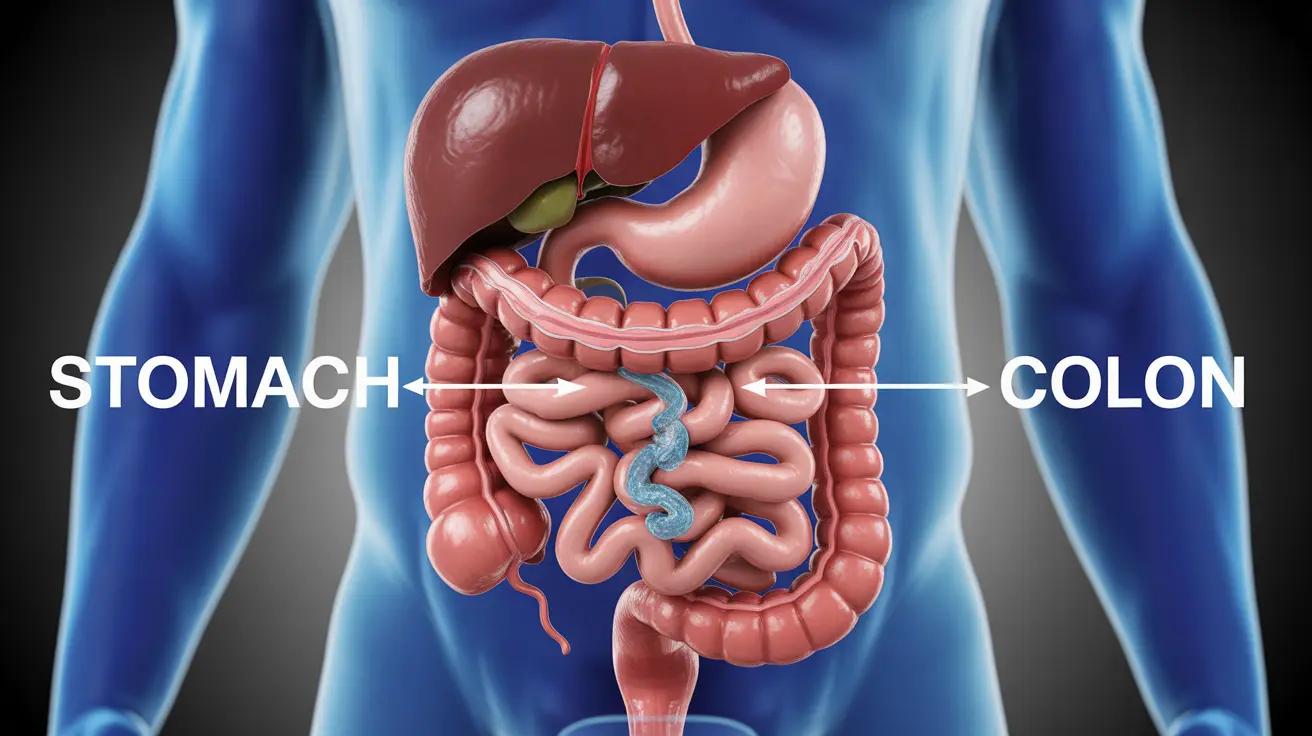Have you ever wondered why drinking water sometimes seems to trigger an immediate trip to the bathroom? This common experience, often described as "water going right through me," can be both puzzling and concerning. Understanding the various factors behind this phenomenon can help you better manage your digestive health and identify when to seek medical attention.
While it's normal for drinking fluids to stimulate bowel movements to some degree, experiencing immediate diarrhea after drinking water may indicate underlying digestive issues that deserve attention. Let's explore the various causes and solutions for this common concern.
Understanding the Gastrocolic Reflex
One of the primary reasons water might seem to pass through you quickly is due to the gastrocolic reflex, a natural bodily response that occurs when food or drink enters your stomach.
This reflex stimulates movement in your colon to make room for incoming nutrients and fluids. While this is a normal process, some people may experience a more pronounced response, leading to urgent bowel movements shortly after drinking water.
Common Causes of Rapid Water Transit
Digestive System Sensitivity
Some individuals have a more sensitive digestive system that reacts strongly to various stimuli, including:
- Irritable Bowel Syndrome (IBS)
- Inflammatory Bowel Disease (IBD)
- Celiac disease
- Food sensitivities or intolerances
Water Quality Issues
Sometimes, the water itself might be the culprit. Potential problems include:
- Bacterial contamination
- High mineral content
- Chemical treatments
- Temperature (very cold water can stimulate bowel movements)
Medical Conditions That May Contribute
Several underlying conditions can make you more sensitive to water intake:
- Microscopic colitis
- Dumping syndrome
- Hyperthyroidism
- Autonomic dysfunction
Prevention and Management Strategies
If you frequently experience water going right through you, consider these helpful strategies:
- Drink water at room temperature rather than ice-cold
- Sip water slowly throughout the day instead of consuming large amounts at once
- Ensure your water source is clean and properly filtered
- Keep a food and drink diary to identify patterns or triggers
When to Seek Medical Help
While occasional rapid transit of water through your system might be normal, certain symptoms warrant medical attention:
- Chronic diarrhea
- Unexplained weight loss
- Blood in stool
- Severe abdominal pain
- Frequent dehydration
Frequently Asked Questions
Why does drinking water sometimes cause immediate diarrhea?
Immediate diarrhea after drinking water can be triggered by the gastrocolic reflex, underlying digestive conditions, or sensitivity to water temperature or content. This natural reflex can be more pronounced in some individuals, particularly those with digestive disorders.
Can contaminated water be responsible for sudden diarrhea after drinking?
Yes, contaminated water containing bacteria, parasites, or harmful chemicals can cause immediate digestive distress. Always ensure your water comes from a safe, clean source and consider using a quality water filter if you're concerned about contamination.
How does the gastrocolic reflex affect bowel movements after drinking or eating?
The gastrocolic reflex is a natural response where your colon increases its motility when food or drink enters your stomach. This reflex helps make room for new content by promoting bowel movements, which can be more noticeable in some people.
What digestive conditions make me more sensitive to water triggering diarrhea?
Several conditions can increase sensitivity to water intake, including IBS, IBD, celiac disease, microscopic colitis, and dumping syndrome. These conditions can make your digestive system more reactive to various stimuli, including water.
How can I prevent diarrhea caused by drinking water or beverages with additives?
To prevent water-induced diarrhea, try drinking water at room temperature, sipping slowly throughout the day, using a reliable water filter, and avoiding beverages with problematic additives. If issues persist, keep a detailed diary of your symptoms and consult with a healthcare provider.




